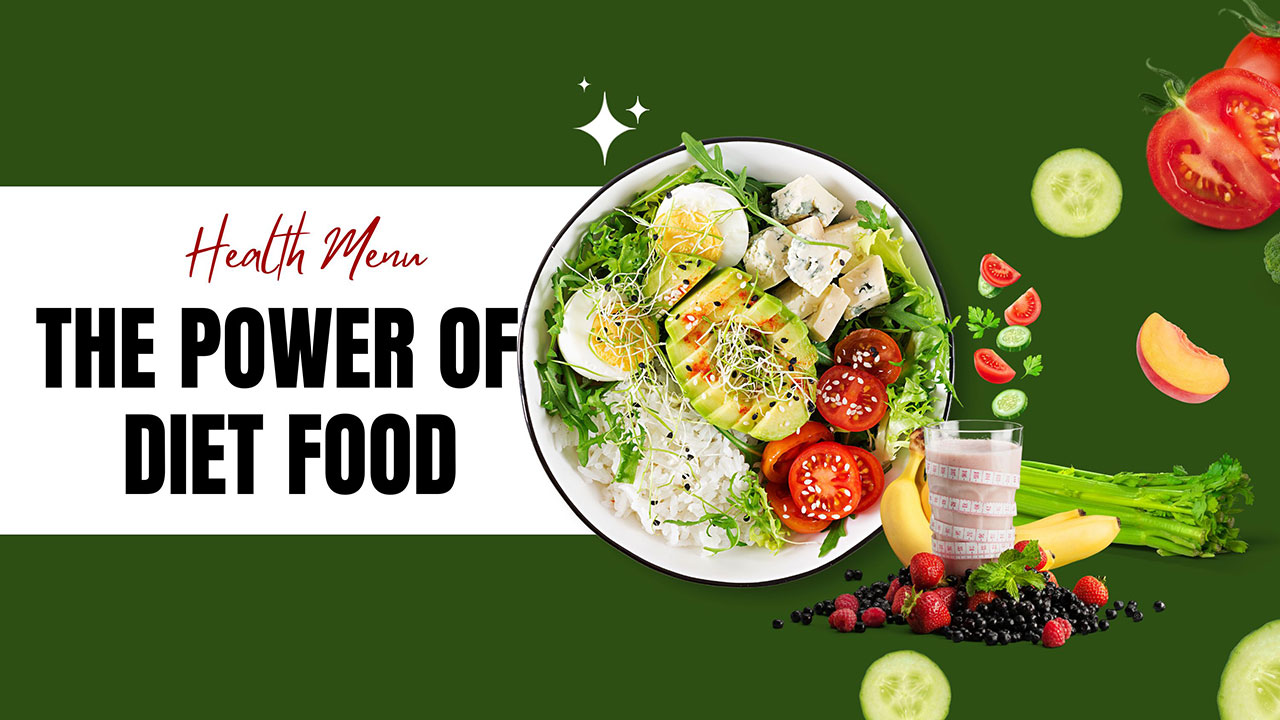Diet food” generally refers to items part of a balanced and healthy diet, often designed to support weight loss or specific health goals. It’s important to note that a healthy diet isn’t about extreme restriction but rather about making nutritious food choices that contribute to overall well-being. Here are some examples of foods that are commonly considered healthy and suitable for a balanced diet:
Fruits and Vegetables:
Berries, apples, oranges, broccoli, spinach, carrots, etc.
Rich in vitamins, minerals, fiber, and antioxidants.
Lean Proteins:
Chicken breast, turkey, fish, tofu, legumes, and beans.
Essential for muscle repair and overall body function.
Whole Grains:
Quinoa, brown rice, oats, whole wheat bread.
They provide sustained energy and are high in fiber.
Healthy Fats:
Avocado, nuts, seeds, olive oil.
It is essential for brain health and nutrient absorption.
Dairy or Dairy Alternatives
Greek yogurt, low-fat milk, almond milk.
Good sources of calcium and protein.
Hydration:
Water, herbal teas.
It is essential for overall health and often overlooked in weight loss plans.
Vegetable-Based Snacks:
Cut up vegetables with hummus and Greek yogurt with berries.
Nutrient-dense and satisfying snacks.
Portion-Controlled Meals:
Controlling portion sizes can help manage calorie intake.
Focus on mindful eating to prevent overeating.
Herbs and Spices:
Flavouring food with herbs and spices instead of excessive salt or sugar.
Adds taste without unnecessary calories.
Limiting Processed Foods:
Minimize processed and packaged foods often high in added sugars, unhealthy fats, and sodium.
Remember, the key to a healthy diet is balance and variety. It’s also crucial to consider individual dietary needs and preferences. If you have specific health goals or dietary restrictions, it’s advisable to consult with a registered dietitian or healthcare professional for personalized guidance. Combining a nutritious diet with regular physical activity and other healthy lifestyle habits contributes to overall well-being.




